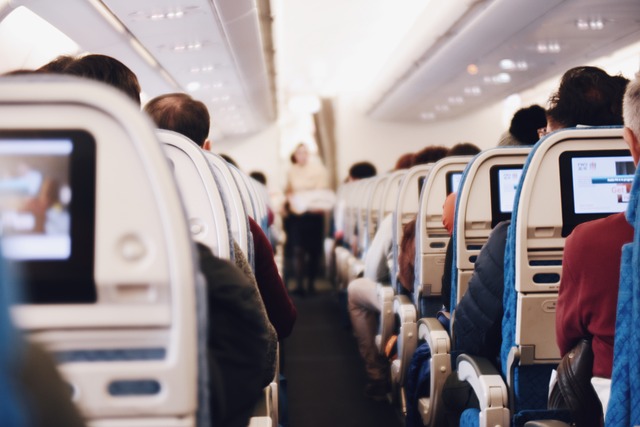-
Passenger and cargo fuel surcharges that airlines may impose from November 1 to 30, 2022, have been lowered to Level 8 by the Civil Aeronautics Board
-
Level 8 rates for passengers range from P253 to P6,208.98 per one-way domestic and international flight, respectively
-
For cargoes, Level 8 rates range from P1.30 to P31.92 per kg on a one-way flight
The Civil Aeronautics Board (CAB) has lowered to Level 8 the passenger and cargo fuel surcharge that airlines may collect from November 1 to 30, 2022 after jet fuel prices declined during the review period.
In an advisory on October 17, CAB executive director Carmelo Arcilla said that from September 10 to October 9, the price of jet fuel averaged P42.87 per liter, versus P47.27 in the previous review period.
The new jet fuel price average corresponds to Level 8 of the passenger and cargo fuel surcharge matrix for domestic and international flights under CAB Resolution No. 25.
Level 8 rates for passengers range from P253 to P787 per one-way domestic flight, and P835.05 to P6,208.98 per one-way international flight.
For cargoes, Level 8 rates range from P1.30 to P3.80 per kilogram (kg) on a one-way domestic flight, and from P4.29 to P31.92 per kg on a one-way international flight.
Airlines wishing to impose or collect the fuel surcharge for November must file their applications with CAB on or before the new rate takes effect, but the surcharge rates must not exceed the stated level.
For fuel surcharge to be collected in the equivalent currency, the applicable conversion rate for the period is P58.05 to US$1.
In May, CAB adopted CAB Resolution No. 25, which provides the revised policy on fuel surcharges and includes a matrix for cargo. The fuel surcharge matrix ranges from Level 0 to 20.
Resolution No. 25 revises Resolution No. 46 (passenger fuel surcharge for domestic and international flights adopted in June 2021), which was reviewed and evaluated by CAB this year in light of the continuous rise in jet fuel prices on the global market, and the foreign exchange rate.
CAB said the review showed fuel surcharges was made only applicable to passengers, which is one component in a combination service (passenger and cargo operations).
Resolution No. 25 said a cargo fuel surcharge matrix may be provided given that the volatility of jet fuel prices also affects cargo operations as a component of a combination service wherein cargo is carried in the belly-hold of a passenger aircraft.
Under the new policy, the applicable fuel surcharge will be determined based on a one-month average of jet fuel Mean of Platts Singapore prices in its peso per liter equivalent, and will be fixed for the immediately succeeding month. This will be the ceiling rate for the fuel surcharge.
The applicable fuel surcharge will be evaluated every month and announced 15 days before it takes effect. Previously, the applicable fuel surcharge was determined based on a two-month average and implemented for two months.
Resolution No. 25 notes that airline fuel surcharge is an optional fee that airlines may impose and collect to recover fuel costs and stem losses from a spike in fuel cost.
“Fuel surcharge is not a part of the basic airfare and may be reduced or removed depending on the price of jet fuel on the market, in accordance with prevailing international practice,” the resolution said.
If the one-month price average of jet fuel falls below P21 per liter, no fuel surcharge will be collected.
The passenger fuel surcharge level in effect on the day of ticketing should be applied, and should be the same for all passengers, excepts infants without seats. The applicable surcharge should be collected per passenger and per segment.
The fuel surcharge should be applied only on cargo carried in the belly-hold of an aircraft used for combination services. Such cargo must be covered by an airway bill.
Cargo fuel surcharge should be collected based on the actual weight (as opposed to chargeable weight) carried per segment. The surcharge should not be levied on a passenger’s check-in baggage.
For international flights originating in the Philippines, the fuel surcharge may be imposed in any equivalent foreign currency. – Roumina Pablo





